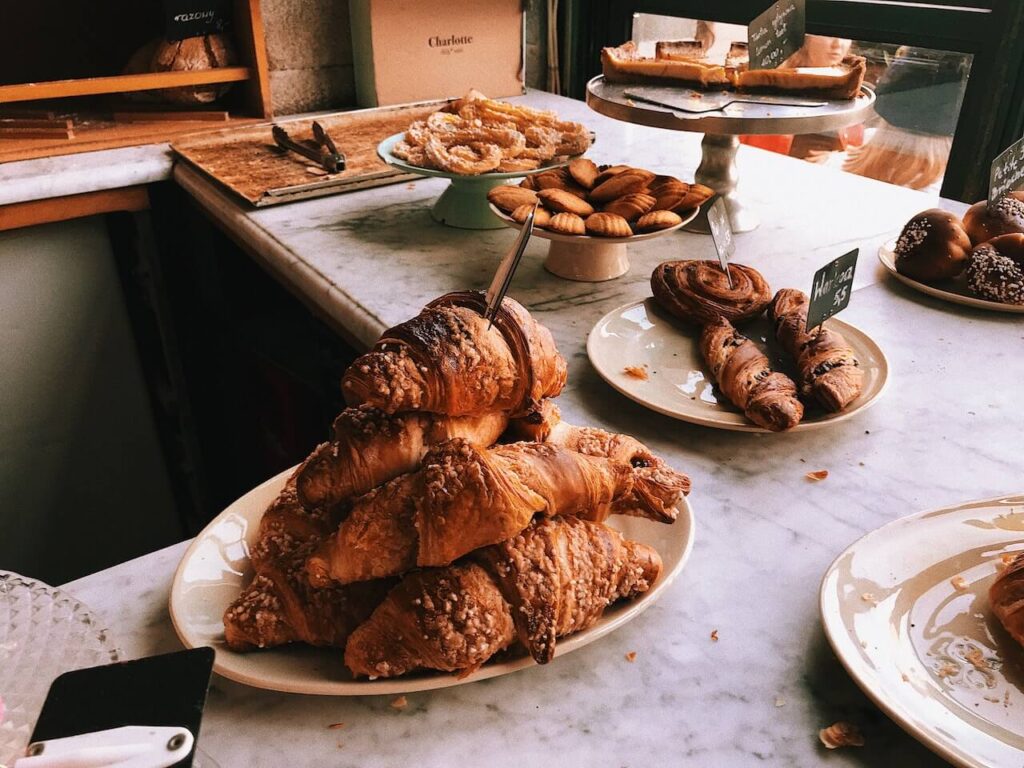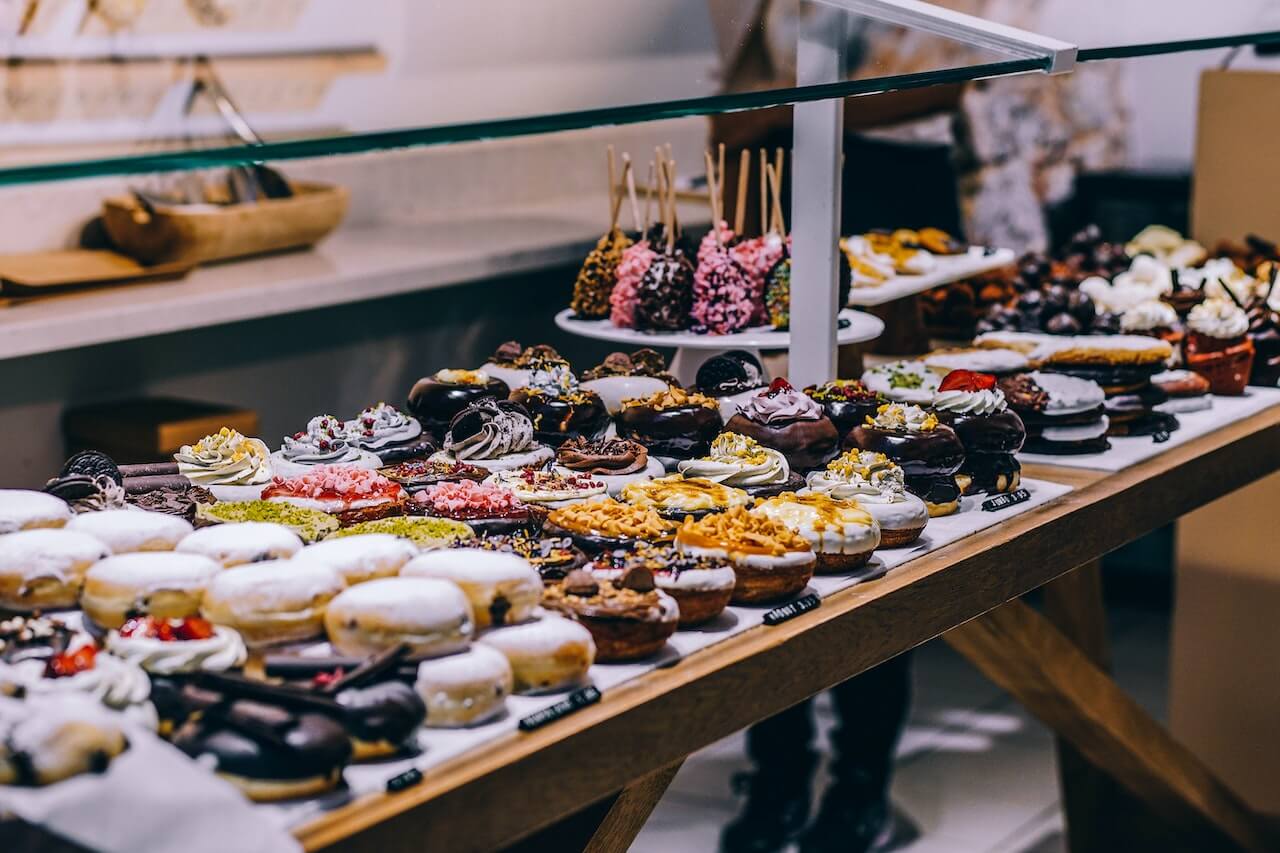The food sector wouldn’t be the same without bakeries, which offer customers wonderful, freshly baked delicacies. Yet bakeries must maintain a consistent stock of fundamental baking ingredients to meet client demand and produce high-quality baked items. Without these ingredients, bakeries would find it difficult to deliver the same level of quality and consistency that customers have grown to expect. These ingredients form the basis for the majority of baked goods.
This article will look at seven essential items that any bakery should have to provide mouthwatering, freshly baked goodies that will keep consumers coming back for more.
Cocoa
The world’s most delectable dishes and beverages have been made with the help of the cherished ingredient cocoa for millennia. It is a necessary component of many baked goods, such as cookies, brownies, and cakes. It is also a well-liked flavor in a variety of drinks, including mocha coffee and hot chocolate. For bakeries and other food enterprises that require big quantities of cocoa, buying wholesale cocoa powder is a cost-effective solution.
It enables companies to buy cocoa powder in large quantities, lowering their overall expenses and maintaining a consistent supply of premium cocoa powder. In this manner, bakeries may produce delectable and opulent baked items that are sure to sate their clients’ sweet tooths.
Flour
The majority of bakery goods are built on flour, so it’s crucial to always have some on hand. It is prepared by pulverizing grains like wheat, rice, or corn into a fine powder. Flour gives baked goods their structure and texture, and the kind of flour used has a big impact on the outcome. For instance, bread flour, which is best for producing bread and other yeast-based baked items, has a higher protein level than all-purpose flour. According to this, cakes and pastries made using cake flour have a lighter, more delicate texture since it has less protein.
Bakeries can produce a wide selection of baked items and modify their recipes to fit the preferences of their consumers by keeping a choice of flour kinds on hand. Since stale flour can impair the flavor and texture of baked items, bakeries must carefully store their flour to guarantee that it stays fresh. Bakeries can make tasty, consistent baked goods that draw consumers back for more by keeping a regular supply of high-quality flour on hand.
Sugar
Sugar is a versatile substance that is available in a variety of forms, such as brown sugar, powdered sugar, and granulated sugar. While powdered sugar is used in frostings, glazes, and other decorative toppings, granulated sugar is the most widely used type of sugar in baking. On the other hand, brown sugar has a flavor similar to caramel and is frequently used in recipes that call for a richer, more nuanced flavor profile.
Sugar enhances the sweetness of baked foods while also improving their texture and color. It helps produce cookies with a crisp exterior and cakes and pastries with a soft crumb. Like flour, sugar must be stored carefully in bakeries to avoid clumping or hardening. Bakeries may produce delicious baked items that leave their clients with a gratifyingly sweet feeling in their mouths by keeping a consistent supply of sugar on hand.
Yeast
The dough is fermented and made to rise by yeast, a microbe. Making bread, buns, and other baked items that require rising is impossible without it. Yeast comes in a variety of forms, including quick yeast, active dry yeast, and fresh yeast. To meet their unique baking needs, bakeries should keep a range of yeast kinds available.

Eggs
One of the many ingredients used in baked goods is the egg. They give the finished product structure, moisture, and flavor. Jumbo eggs are best for recipes that call for more liquid, including custards and quiches, while giant eggs are the most frequently used size in recipes. The type of egg used can also have an impact on the outcome. Bakeries can produce a wide variety of baked items with consistent quality and flavor by keeping a continuous supply of fresh eggs on hand.
Butter
In addition to flavor, texture, and moisture, butter is a versatile component that can be used in baking. It is incorporated into many baked items, including cakes, cookies, and pastries. Unsalted butter should always be available in bakeries because it is the most adaptable kind for baking.
Baking Powder and Baking Soda
In baked goods, leavening agents like baking soda and baking powder are frequently utilized. While baking soda is a pure form of sodium bicarbonate, baking powder typically consists of baking soda, cream of tartar, and occasionally cornstarch. Both function by producing carbon dioxide, which makes baked foods rise and become airy and fluffy.
Baking soda is used in recipes that call for a stronger rise or call for acidic components, like yogurt or vinegar, such as fast bread or muffins. Baking powder is used in recipes that call for alkaline ingredients, like milk or sugar. Having these leavening chemicals on hand allows bakeries to produce baked goods with the ideal texture and rise, guaranteeing constant quality for their clients.
Any bakery must have these seven fundamental supplies. To make sure they can satisfy their baking needs, bakeries should also think about the quality of their ingredients and inventory levels. Bakeries can provide delicious and fresh baked items that keep consumers coming back for more with these basic supplies and attention to detail.








